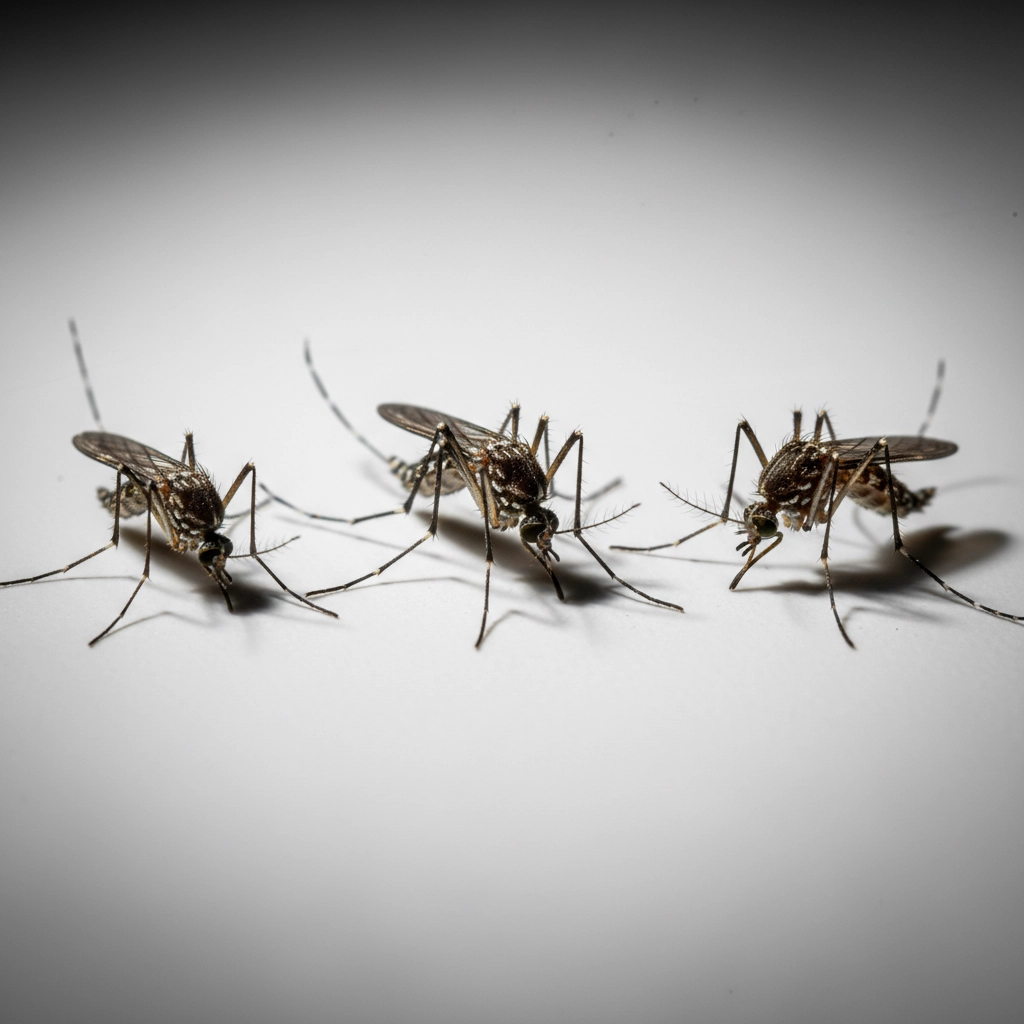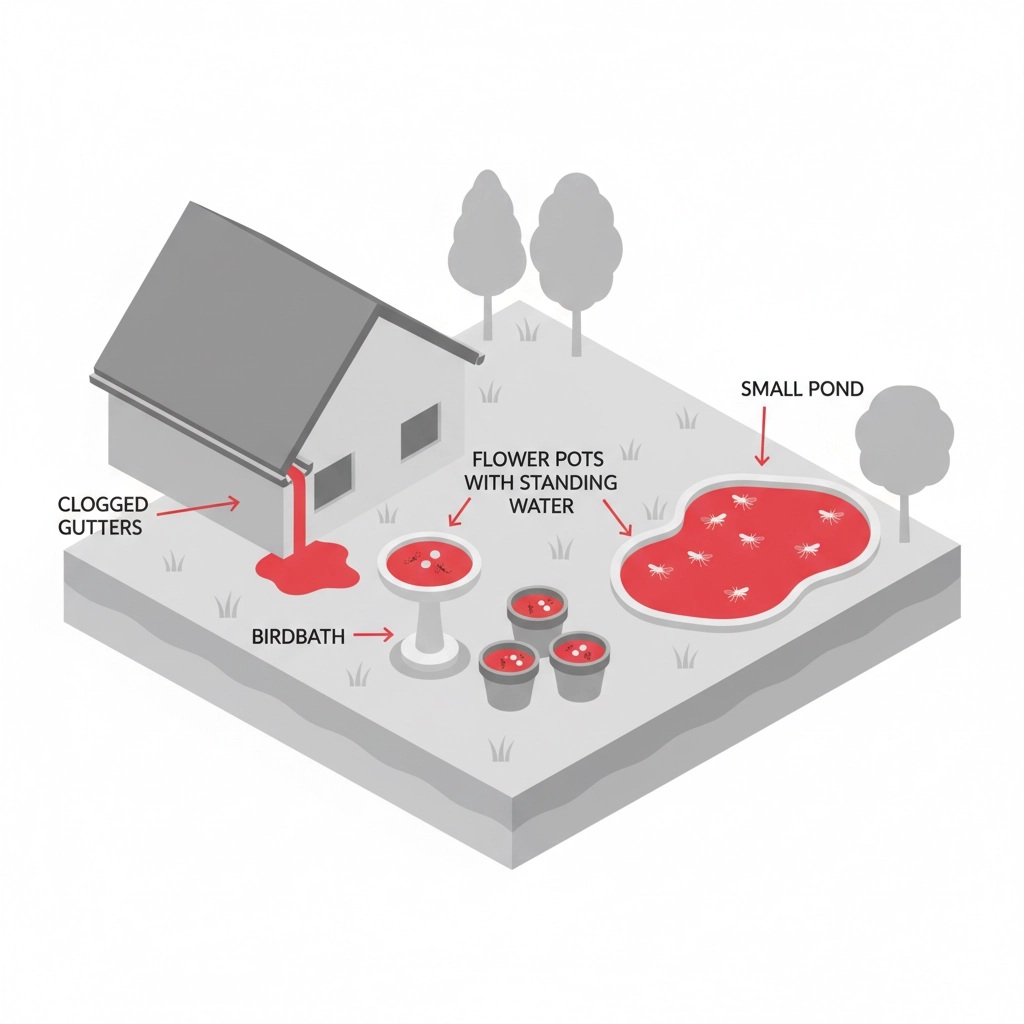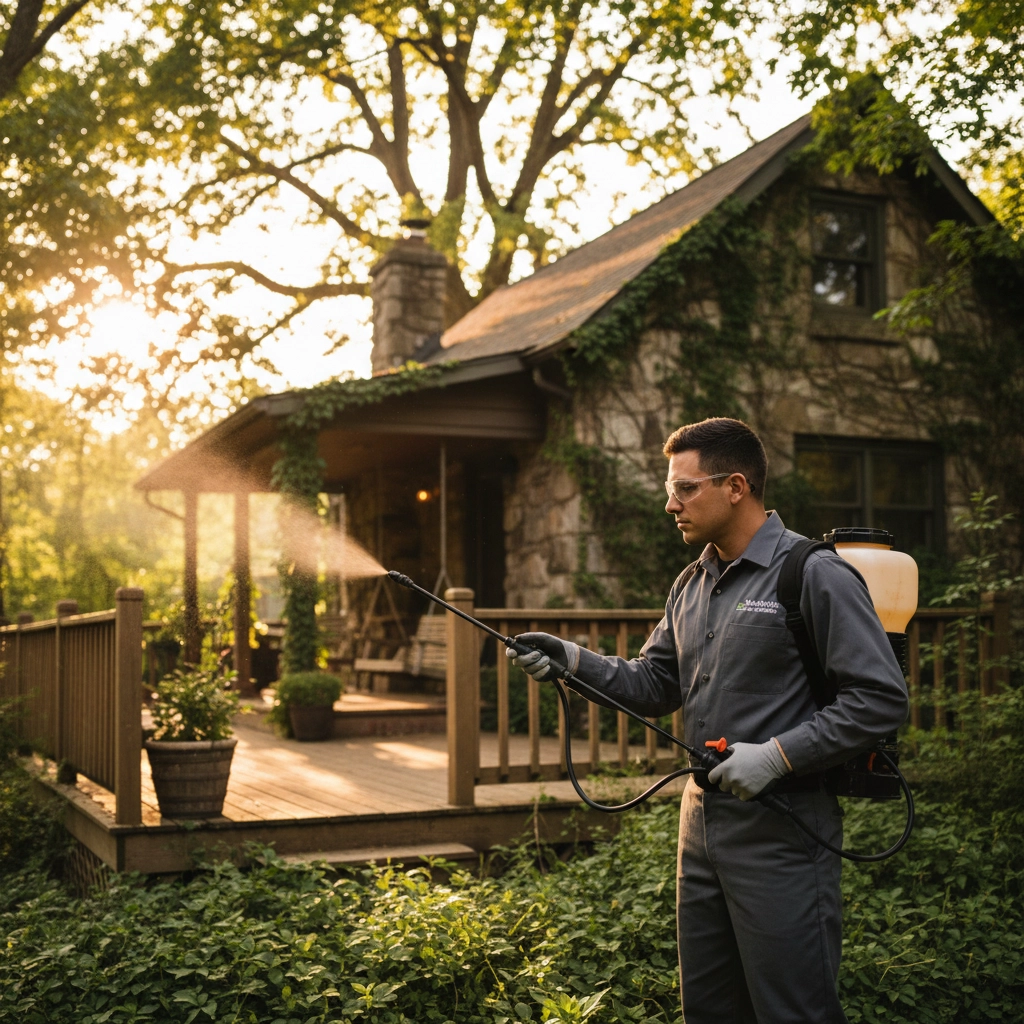Mosquitoes in Haliburton County: Identification, Risks, Prevention, and Control
- Targeted Wildlife and Pest Solutions

- Sep 26, 2025
- 4 min read
Summer in Haliburton County brings beautiful weather, cottage season, and unfortunately, mosquitoes. With our region's countless lakes, wetlands, and forested areas, we've got prime mosquito real estate. If you're dealing with these buzzing nuisances around your home, cottage, or business, you're definitely not alone.
Understanding what you're up against is the first step in taking back your outdoor spaces. Let's break down everything you need to know about the mosquitoes calling Haliburton County home.
What Mosquitoes Are Buzzing Around Haliburton County?
Surveillance data shows six main mosquito species thriving in our area, and each one has its own personality when it comes to where they hang out and how much trouble they cause.
Aedes vexans takes the crown as our most common mosquito: and trust us, the name fits. These aggressive biters are your typical dawn and dusk mosquitoes, the ones that seem to find you the moment you step outside with your morning coffee or evening barbecue.
Culex pipiens and Culex restuans come in second for population numbers. You might know these as "house mosquitoes": light brown with white stripes, and they love polluted standing water. Think storm drains, forgotten birdbaths, and that old bucket you've been meaning to empty. These mosquitoes are particularly concerning because they're the primary carriers of West Nile Virus in Ontario.

Coquillettidia perturbans and Anopheles punctipennis round out the native species you'll encounter. Then there are the newer arrivals: Aedes triseriatus/hendersoni and Aedes japonicus. The latter is an invasive species that first showed up in Ontario back in 2001, and its numbers have been steadily climbing ever since.
Health Risks You Should Know About
While mosquito bites are annoying enough on their own, the real concern is what these insects can transmit. The Culex mosquitoes we mentioned earlier aren't just nuisances: they're the main vectors for West Nile Virus in our region.
West Nile Virus might not make headlines every summer, but it's a serious concern. Most people who get infected don't show symptoms, but about 20% develop fever, headache, body aches, and sometimes a rash. In rare cases: less than 1% of infections: it can cause serious neurological complications.
The Culex species can also transmit various forms of encephalitis. While these cases are rare in Ontario, they're serious enough that provincial health officials actively monitor these mosquito populations throughout the summer months.
The invasive Aedes japonicus adds another layer of concern. This species has the potential to carry various arboviruses, and since its population is growing in our area, health officials are keeping a close eye on it.
Prevention: Your First Line of Defense
The good news? You have more control over mosquitoes than you might think. The key is eliminating their breeding grounds before they become a problem.
Water Management is Everything
Mosquitoes need standing water to reproduce, and they're not picky about where they find it. Female mosquitoes can lay 50 to 400 eggs at a time, and those eggs can hatch in just 10 to 14 days under the right conditions.
Walk around your property and eliminate any standing water sources:
Empty flower pots, buckets, and containers after rain
Clean out gutters regularly
Change birdbath water weekly
Fix leaky outdoor faucets
Ensure proper drainage around your foundation
Cover rain barrels with fine mesh
Since Culex mosquitoes particularly love polluted water, pay special attention to areas where organic matter might be decomposing in standing water.

Landscape and Property Maintenance
Mosquitoes need places to rest during the day, so reducing their hiding spots makes your property less appealing:
Keep grass cut short
Trim back overgrown shrubs and vegetation
Remove debris piles where mosquitoes might shelter
Ensure good air circulation around outdoor seating areas
Physical Barriers Work
Don't underestimate the power of good screens. Make sure all your window and door screens are in good repair, with no holes or gaps. For outdoor entertaining, consider screened porches or gazebos.
When Prevention Isn't Enough: Control Methods
Sometimes, despite your best prevention efforts, mosquito populations around your property get out of hand. That's when it's time to step up your control game.
Professional Larval Control
The most effective mosquito control targets larvae before they become flying, biting adults. Professional pest control services can identify and treat breeding sites that might not be obvious to property owners.
This might include treating natural water features like ponds or slow-moving streams on your property with larvicides specifically designed to kill mosquito larvae without harming other aquatic life.
Adult Mosquito Management
For immediate relief from adult mosquitoes, professional services can apply targeted treatments to areas where mosquitoes rest during the day: dense vegetation, under decks, and other shaded areas around your property.
These treatments typically use ultra-low volume applications that target mosquitoes while minimizing impact on beneficial insects like bees and butterflies.

Timing Matters
Professional mosquito control works best when timed with mosquito life cycles and peak activity periods. In Haliburton County, this typically means starting treatments in late spring and continuing through early fall, with peak treatment periods during the height of summer.
Special Considerations for Cottage Owners
If you own a cottage in Haliburton County, you face unique mosquito challenges. Properties that sit empty for weeks at a time can develop mosquito problems that explode when you arrive for the weekend.
Before opening your cottage each season:
Check all gutters and drainage systems
Remove any containers that collected water over the winter
Inspect dock areas and waterfront features
Clear out any debris that might hold water
Consider professional seasonal treatments that can keep mosquito populations manageable throughout the cottage season, especially if your property has water features or wetland areas that can't be eliminated.
The Bottom Line on Mosquito Control
Dealing with mosquitoes in Haliburton County requires a combination of understanding what you're up against, taking proactive prevention steps, and knowing when to call in professional help.
The species in our area aren't just nuisances: some carry real health risks. But with the right approach, you can significantly reduce mosquito populations around your property and reclaim your outdoor spaces.
If you're dealing with persistent mosquito problems despite your best prevention efforts, it might be time to consider professional mosquito control. A comprehensive treatment program can provide the relief you need to enjoy your Haliburton County property all season long.
Remember, effective mosquito control isn't a one-and-done solution: it's an ongoing process that works best when prevention and professional treatment work together. Your summer evenings by the lake shouldn't be spent swatting mosquitoes.
Comments